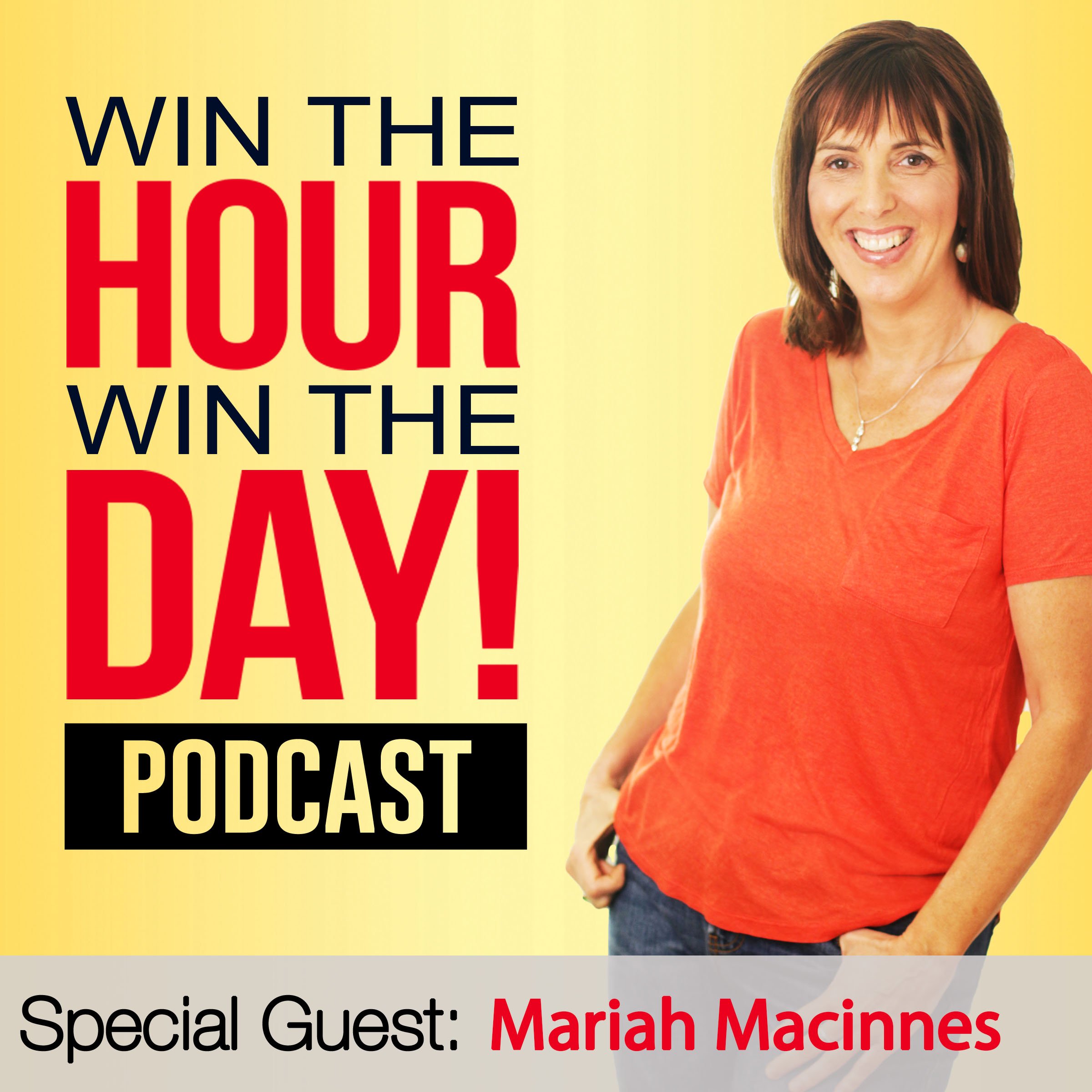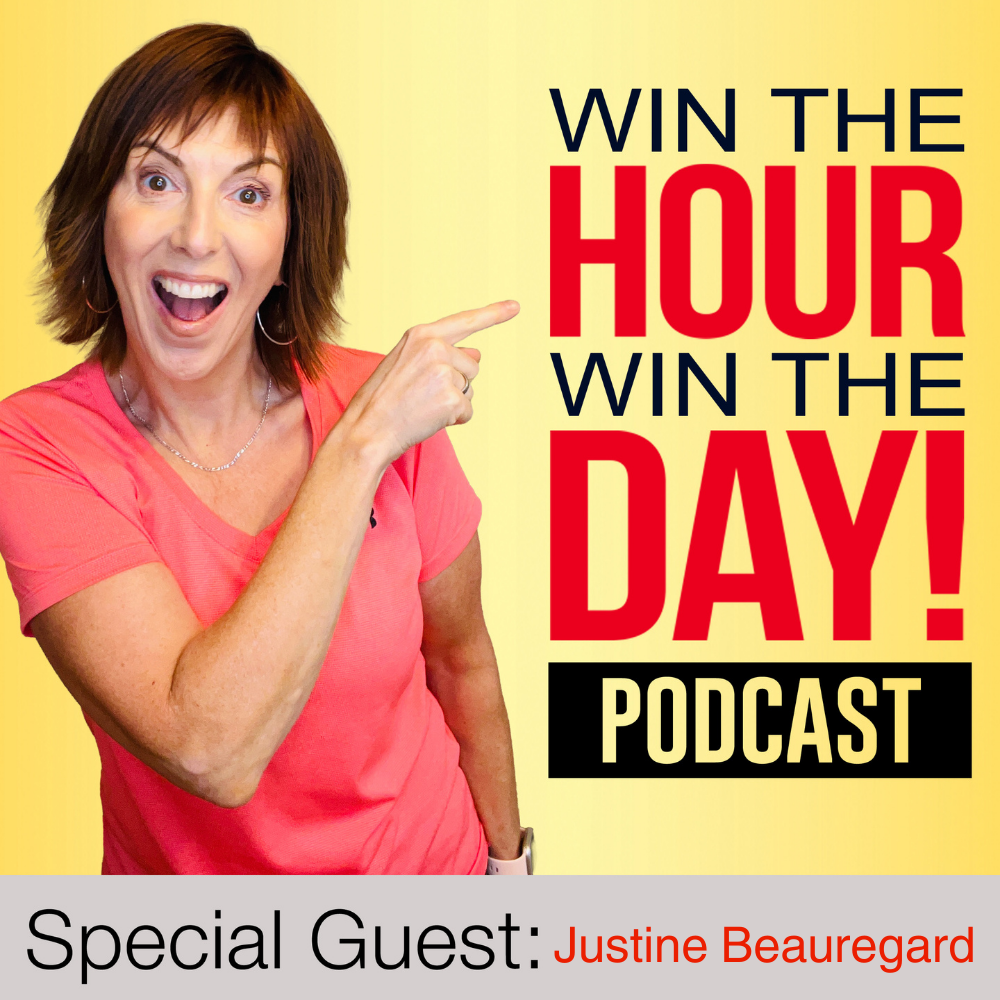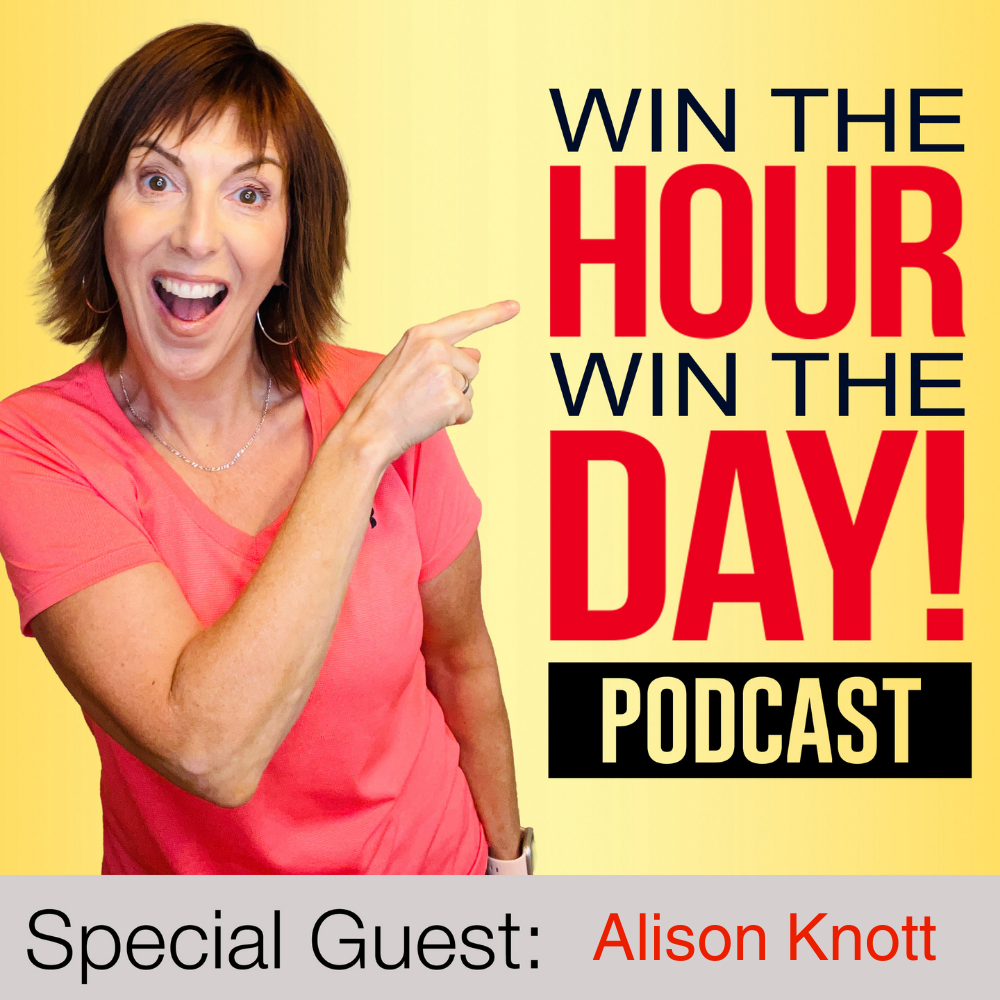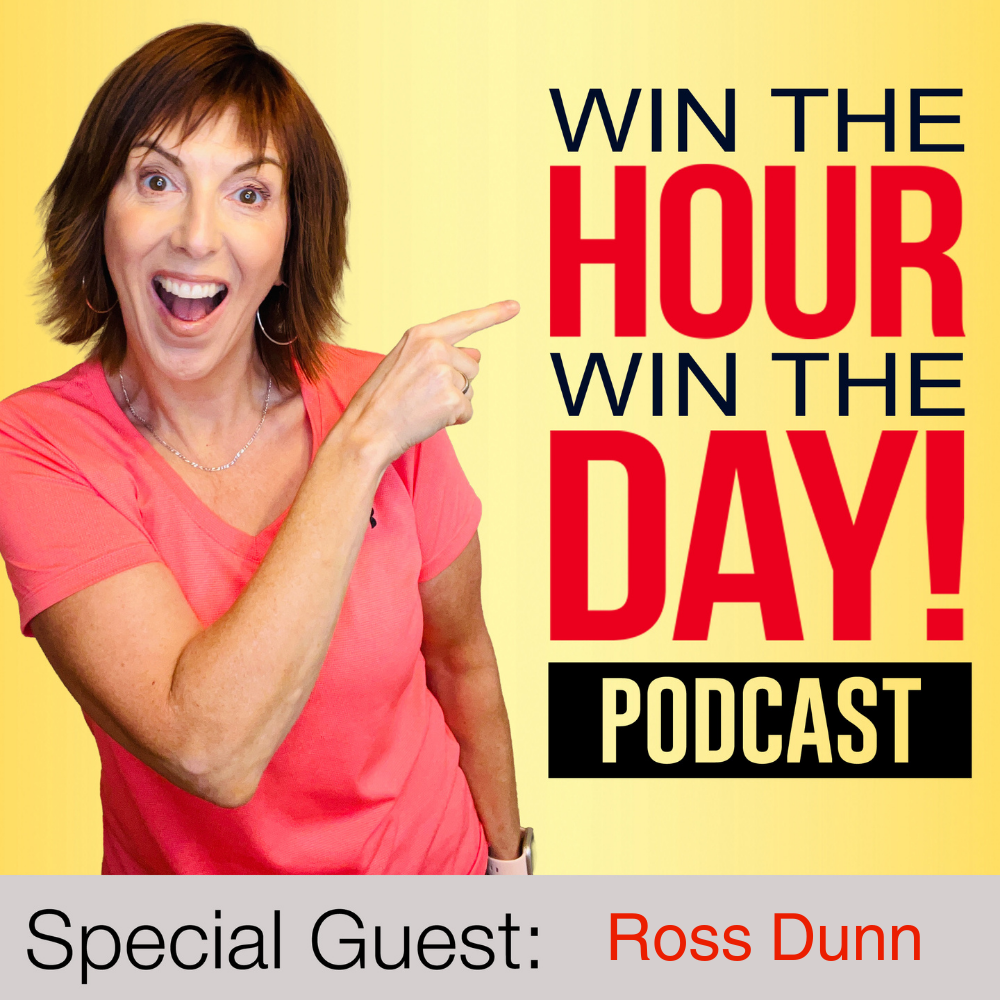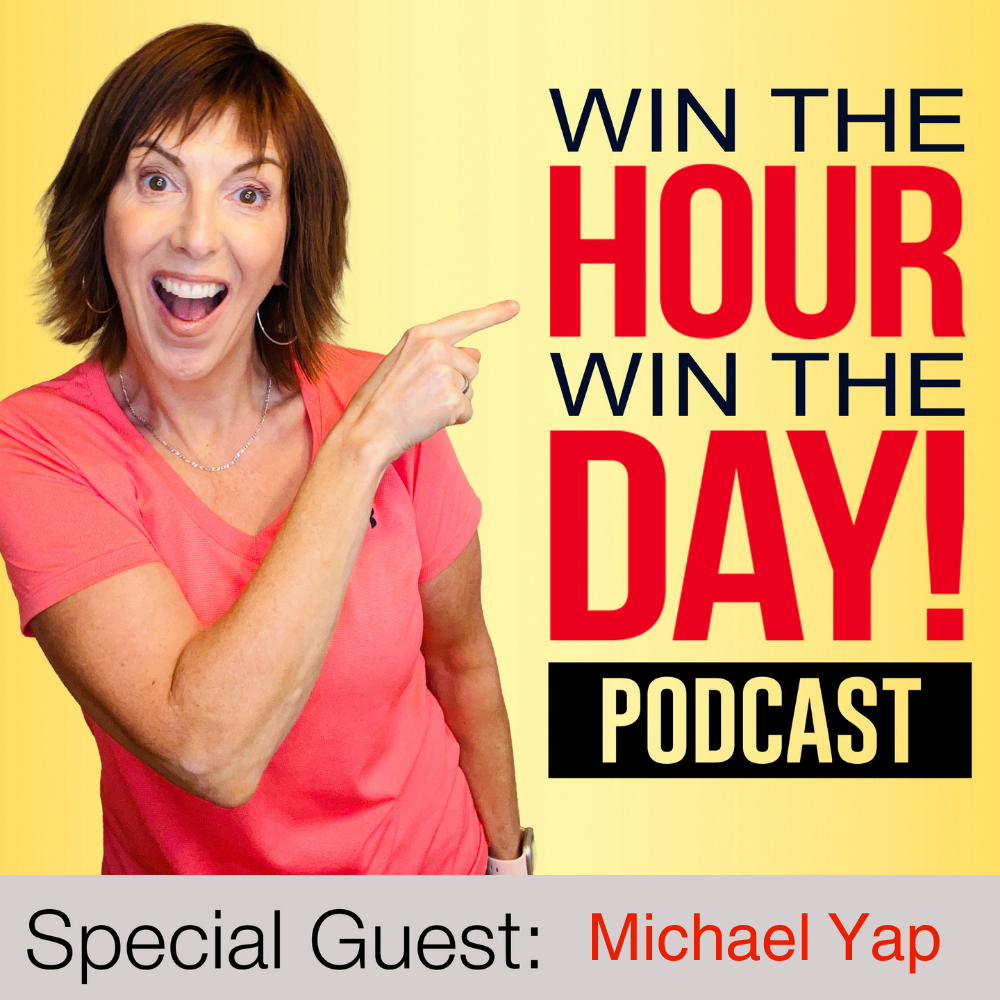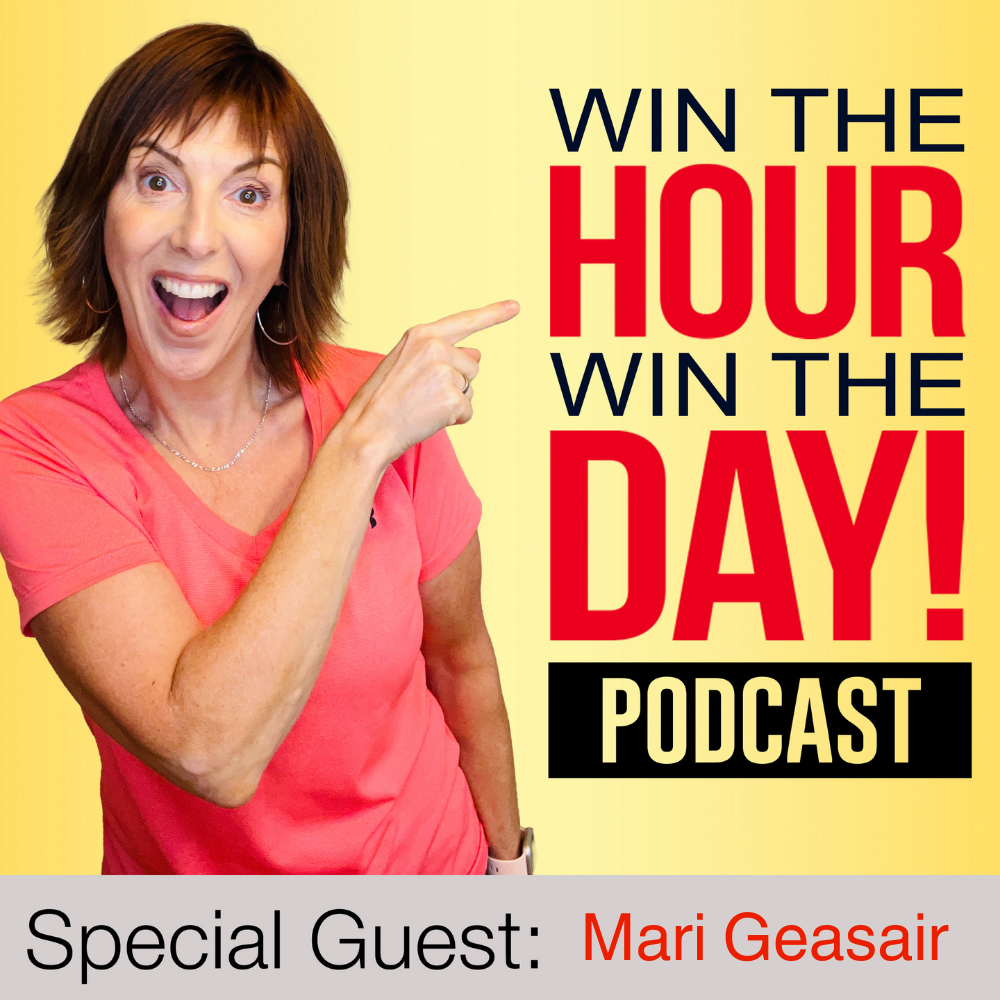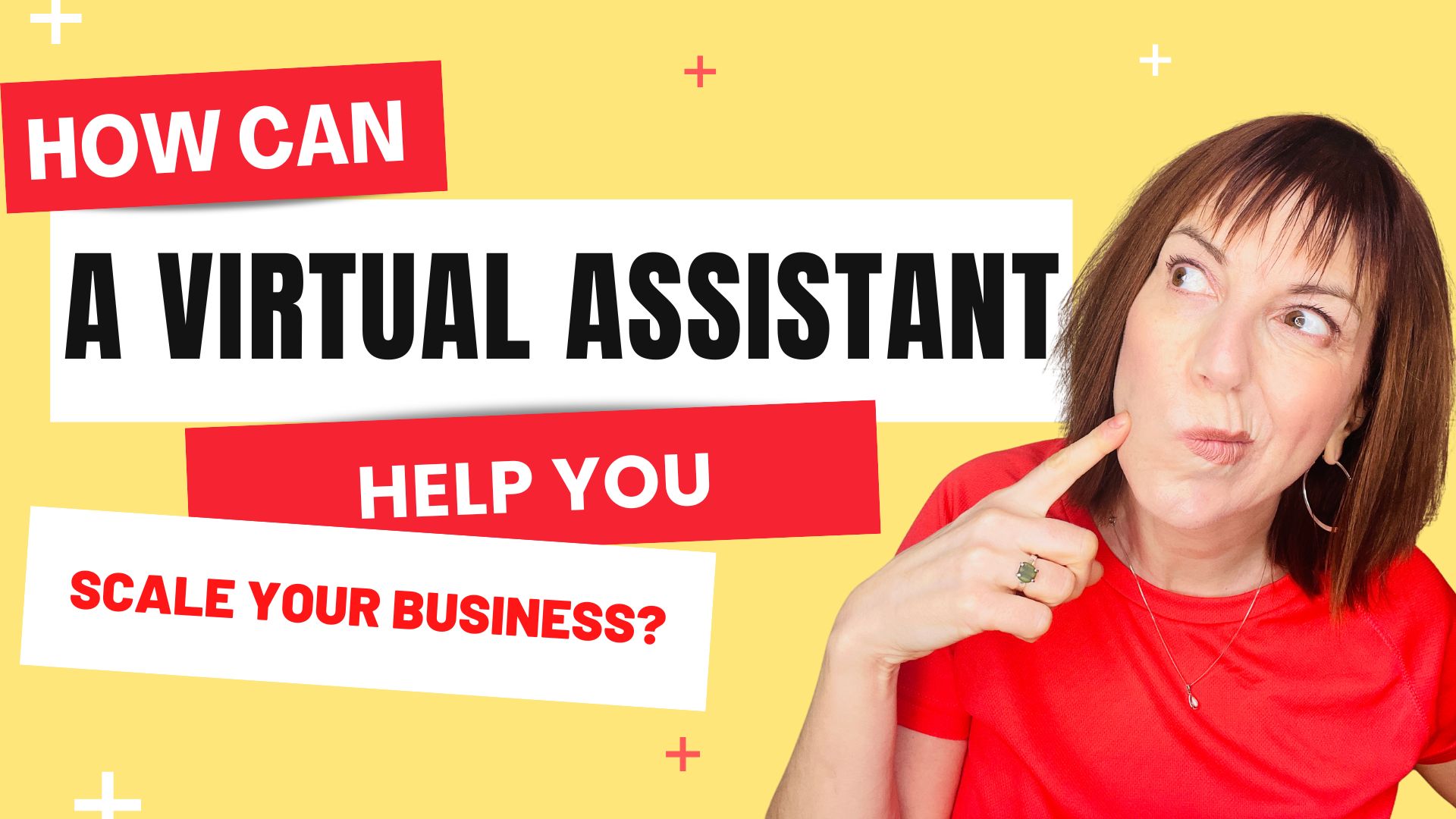Episode Summary
Mariah MacInnes dives in and gives us powerful tips to market effectively and still be ourselves! This is a no-nonsense conversation with great takeaways and a ton of honesty!
Learn how to:
-find YOUR tribe!
-give great value but leave them still needing YOU!
-avoid the trappings of the “salsie” marketer!
Join The Community: https://www.facebook.com/groups/WinTheHourWinTheDay/
Win The Hour, Win The Day! www.winthehourwintheday.com
Podcast: Win The Hour, Win The Day Podcast
Facebook: https://www.facebook.com/winthehourwintheday/
LinkedIn: https://www.linkedin.com/company/win-the-hour-win-the-day-podcast
Want to learn more:
Email: information@contentqueenmariah.com
Website: www.contentqueenmariah.com
Instagram: https://www.instagram.com/contentqueen_mariah/?hl=en
Facebook: https://www.facebook.com/contentqueenmariah/
LinkedIn: https://www.linkedin.com/in/mariahmacinnes
Company Website: www.manheim.com.au
Blog: atravellersantics.blog
Blog
Mariah McInnes_Podcast Interview
Mariah:We’re going to dive into the four content pillars. All right? This is just going to be all kinds of helpful and then actually she’s going to give us a peek into a world that we talk about from time to time here cause she’s come from the outside outsourcing world. But here we are now Mariah all the way from Australia.
[00:15:01] Mariah: I think when it comes to producing content, whether it’s, you know, through a blog or podcasts, social media, I find like a lot of entrepreneurs and business owners really struggle with that consistency.
[00:15:13] So showing up consistently and then also providing value to their audience rather than just selling. I see a lot of salesy posts, and we live in a society now with selling is just. A whole different thing. It’s like, well, then tick. It’s conversational. It’s not just like hard sell, don’t miss out by this.
[00:15:32] So I think we’re trying to, we’re struggling with the shift from, you know, really salesy content to just like natural sharing journey sharing stories. So, and also, I think it’s like running out of ideas, like how can we talk about different stuff towards our business all the time. So that’s why I think content strategy and forming a strategy around your content marketing will really help you break through that.
[00:15:57] And since having my own content marketing strategy, you notice, your reach increase and your followers increase. You seem to be attracting more of an aligned audience because you’re speaking to the messages that they want to hear.
[00:17:01] Like, listen, you don’t have to work this hard. And you could have an outsourcer, you know, like for the cost of the coffee that you have in your hand, but at the end of the day, that still is salesy.
[00:17:13] Mariah: Yes. And I think it takes time. And that’s why it’s a strategy to get through and deliver a message and a journey.
[00:17:20] And that’s why, you know, if you’re creating content on socials, it’s like showing up consistently and taking people on a journey of what you’ve learned. Like, you know, personal stories of when you first started off in business and you didn’t have an outsourcer and you’re working 12 hour days and you were stressing yourself, you know, you weren’t getting any sleep, and now you’ve realized how easy it is.
[00:17:40] To, you know, create more for your business and have like actually less time in your business because you’ve created this form of outsourcing that’s, you know, you’re, you’re getting people to help you and people one minute video, I’m going to get that from me. So that’s why it’s like a strategy. And if you dive into the four pillars of content, you’re kind of taking everyone on that journey from a different aspect, from informing them around.
[00:18:06] You know, he’s what I did and this is how I can help you. Like, you know, promoting yourself and educate them through educating around the strategies of outsourcing and how you can help people through your strategy and educating on bits and pieces from that strategy. Then you might engage with them and ask them, what, what’s your pain points when it comes to outsourcing?
[00:18:29] Like, I’m here for you and I want you to tell me what you need help with. And then the fun side of your business is, you know. You’ll put costs, selfies and stuff like that, that you’re showing people behind the scenes of your business. So if you tap into informing, educating, engaging, and fun, you’re giving people a whole picture of your business rather than just trying to get the message out straight away.
[00:18:49] You’re kind of taking them on a bit of a journey. And that’s what I think we really struggle with. Yeah.
[00:18:55] Kris: Yeah, you’re right. I think we all like press play on the, on the camera or whatever we’re doing typing and post out, and you think, this is our one shot and this is what I struggled with. I’ve said this many times in the show with social media for the longest time, I really struggled with it because I felt like.
[00:19:10] If people were walking by, I’m trying to tug their sleeve. Like if you asked me to be a speaker and a speaking gig, I’m totally cool with that. I’m fine. It wasn’t that I was shy. Clearly we’ve established that, but it was that. It was that I felt like, you know, you didn’t ask me to show up here. Right. And I’m just, as you walk by, I’m trying to get your attention.
[00:19:26] And so then you’re blasting people kind of like those interruptive YouTube videos where you’re looking for something and then, you know, they’re talking loud and fast and those first 10 seconds to get your attention. Okay. But we just have to, we have to remember, and I swear, I th I, I mean, I know this yet.
[00:19:42] I think we should all, maybe when you decide you’re going to be entrepreneur, you should have to get two tattoos and one should be tell stories. Right. And the other, I guess, like slow down and stop trying to do it all in one hit. It’s a relationship.
[00:19:57] Mariah: Yeah. And I literally did a podcast episode on building connection with your audience.
[00:20:02] And one of them is to have a strategy around way of showing up when you’re showing up, but just provide the value, like give people what they need so that they could do it on their own, but then they look back and they need you to help them. So if you give them the tips and the tricks that they need, then they’re going to go, yep, I’m going to implement.
[00:20:19] And then like. Yeah, but I need to push further. So I need Chris to help me. And that what you, you’re building a relationship and you’re, and it’s, and it’s a longevity. It’s not, it’s a content. Marketing is a slow burn. It’s not that we’re going to get results now. I’m going to put this strategy in place and I’m going to work to that strategy and I’m going to see the way my aligned audience come to me.
[00:20:39] And when people start seeing you, and then they start commenting, and then more people start seeing you, and it’s just a snowball effect. And it’ll happen. Over a long period of time, but it’s a long game. Like we know entrepreneurship is a long game, so content is the same thing.
[00:20:54] Kris: Yeah, that’s a really good point.
[00:20:55] A slow burn. I recently, I don’t know if it is in Australia, but Mr. Rogers, who was an American kid show, has become a big deal. Now. They’ve got a documentary on him and they have a movie on him. Did you, did you guys know Mr. Rogers.
[00:21:10] Mariah: I might’ve been too young for that. I don’t know.
[00:21:14] Kris: Oh yeah, she’s showing off.
[00:21:15] Okay. Well, he was a, it was a very famous children’s show. And you know what, I’ll tell you the truth though, even as a child, and it’s on reruns and stuff. So there you go. I saw it in reruns. I’m young too. When you watch. Did even as a child, I thought he talked too. So I was annoyed by his slowness, but he was known for being really good about letting children digest information.
[00:21:39] And he was supposed to be this, man that broke frontiers as far as children explaining things to children that had never been explained before. Like even like, a mass, you know, like a shooting or a murder or something like that on that, that the parents are seeing on the news. Right. So anyhow.
[00:21:55] But what the why, I’m telling you a fricking long story about Mr. Rogers is there is a point here, I’m starting to sound like my grandfather. He said he spoke to one child at a time in the camera, and I found that really fascinating. So he had this big global TV show and he said he always just pictured one child and he, that’s why he could speak slow.
[00:22:13] And his content was different. And I was like, okay. It was a bit too slow for me. But in his niche, he broke. Like major frontier grounds as far as how education and children came to be, and it was that simple philosophy. So really kind of ties into what you’re saying.
[00:22:28] Mariah: Yeah. And it’s interesting that you say like he pitched it that one person, cause that’s like that is content marketing right there.
[00:22:34] It’s like if you know your aligned audience, you create the content for that one person that, that’s perfect idea. You know, when in marketing we do our audience profiles and you talk to that one person and you know, not everyone’s going to like you. Just like you said, you didn’t like him cause he speak slow.
[00:22:53] Two slow and that’s okay. Hey, I’m sure like he’s okay with that because that’s his niche. And if you don’t fit into that niche, that’s okay. If you try to be good to everyone, you’re good to know. And we know that in marketing. So, if you have that align audience and you deliver your content that’s unique to you, then that’s okay.
[00:23:13] There’s no right or wrong way to do content. We hear like, you should do this at this time. You should talk in the set way, but if it’s not aligned to you and it’s sort of authentic to you, what is the point? Because you’re just delivering a message that’s not yours. It’s one that someone else has told you to do.
[00:23:27] And I get so many questions on like, what time should I post? You know, what’s, you know, when should I put the hashtags in the comments on Instagram? And yeah, there’s a strategy to certain themes, but. It’s like, what feels good for you? Like what? You know, what do you love doing? If you don’t love creating content, what can you do to make the content process easier?
[00:23:47] Like outsourcing for one or for re-purposing? I’m a big fan of re-purposing, so the strategies you can put in place if you don’t like creating content and make it easier for you. And then. You’ll love it because you love your business. So you want to talk about it and you want to talk about your journey and why you’re doing what you’re doing in it.
[00:24:03] And it just becomes fun. It shouldn’t be a chore. And I think we’ve
[00:24:06] Kris: always sort of an essential, and I think we all too. Back in the day when you were asked to do whatever public speaking at school or if you’re asked to do a speaking gig, you’re on stage and there is a level of professionalism or performance, I guess I would say.
[00:24:21] And I know for me it was a really long time before I could strip that back. It’s social media cause I thought I was there to present and put my shoulders back and look professional and it just. It wasn’t very interesting and it was painful for me and, and it wasn’t just who I am. Right. So, so that I would try to talk slower.
[00:24:37] That didn’t work, then it would, it might, speech would speed up and then I’d slow it down. And I’m sure it just sounded crazy. But anyhow. You mentioned something about outsourcing, and this is of great interest to me because you, before you started your company, you used to be hired as outsourcer, correct?
[00:24:55] Mariah: Yes, yes. I worked on, I did five. I use Fiverr to build my business. Yeah.
[00:25:00] Kris: Okay, so do you use Fiverr? You said. Yeah. It sounded much more intelligent with your Australian accent. And so you use fiber. And when we were talking, what I found fascinating because I’m all about the fact that business should be fun and that it should support your life, not consume it.
[00:25:16] And in order to do that, you do need to have help. Like you don’t need more time, you need more help. Like I always say, you know, the first apartment you moved out of. In your, when you left home and you looked around, you didn’t say, Oh, you know what I need is a couple of days to move. You said, no, I need more help.
[00:25:31] Right. So. I’m all about outsourcing and we’ve got an info product coming out in a number of weeks and stuff like that. We’re pretty excited about working really hard on it. But what was really interesting to me is, so you were an outsourcer and now you have a company, and what I want to educate people on or enlighten them about is the fact that you’re still nervous to hire.
[00:25:52] Is that correct?
[00:25:54] Mariah: Yeah, absolutely. And I think, I’m also, you know, it’s just one of those things like. You’re so aligned to your business and you know exactly what you want, and when you have to hire someone to come in and do work for you.
[00:26:10] It’s, it’s scary. And some of this stuff like. A couple of things.
[00:26:14] I’ve had friends help me with, which I know them. So it’s the trust factor that you have. And then when I have to add souls and go to five for myself, I was really nervous. And in the end it was like a really good process, really easy. Cause I know I’ve been on the other end, but it’s just like also apps, like forking out that money at the start when you don’t see anything in return just yet.
[00:26:38] So I think that was kind of one of the things that I am. I was like struggling with, and then I thought, Oh, this is what my clients would, who would’ve thought when they hide behind five, but like how do we know the scale can do what she says she does? So it’s interesting.
[00:26:55] Kris: I would say they can know because there’s a strategy and that’s what I want to educate people on too, which is really interesting to me because we hear that, excuse me, we hear that a lot.
[00:27:03] People will say, okay, I will hire my friend or my sister in law just to help me out during this one crunch in my business. And you know, in your heart that they do are not the best fit for the job. They don’t have the highest skill level and you’re kind of half showing them what they need to do, but you have this false sense of, okay, well I at least know that they’re safe, that I can trust them, which I don’t even know what you’re trusting them with because it’s not like you’re, you open the vault and let them Polish the gold.
[00:27:31] Right. Whenever you took, gave them, you can take back. So we hear that a lot from people saying, well, no, I, yes, I hired my. My friend now because I trust her now, she didn’t do a great job and add a little tension and then I just realized, Oh, I shouldn’t be hiring people and getting other people to come in because the one person I trusted who was not qualified for the job didn’t turn out.
[00:27:52] You know what I mean? So, and you would say too, that you’ve had a peek to the other side cause you were outsourcer, and yet really what you didn’t have was a strategy, an effective strategy. In place so that you said, okay, I more than, you know what I’m hiring for, I need to make sure I have a hiring process.
[00:28:12] Right. So, you know, missing that. So that’s what, because you had been to the other side, you were the outsourcer, you knew it wasn’t this dark room with all kinds of, you know, scariness. You knew there was honorable and skilled people on the other side, but that bridge wasn’t there for you. Is that what you were missing?
[00:28:29] Yeah. Right. .
[00:28:32] Mariah: Yeah. It’s interesting because obviously I, I’m like, we had, trust me, like, I, I have all this experience. I’ve done so many and you know, we’d like intellectual property at this stage. Like you can’t just be like sending, like, here’s all my examples, look at how good I am, because obviously you don’t own the piece of content that you’ve created for someone else.
[00:28:51] So when I was like looking for. Someone’s helped me with my ebook. It was designed, cause I’m, design is the one thing that I will definitely ask the cause. I’m just one of those things. And I, yeah, I said like, Oh, do you have any examples? Like, Oh, I can. I can, I can’t really send you anything cause I have intellectual property on it.
[00:29:07] And I’m like, that’s fine. I understand that. So I like looked through all the reviews and people had posted that what he’d done for them and I was like, okay, yep. Awesome. Sounds good. So I just like, I did it, but then on the other thing, I got someone to do my website and I could see all of her, you know, her content.
[00:29:25] And that was a really easy process for me because she. She had like, like steps in place for her clients, which made it quite easy. But at the same time I did go through like however many zillion Coles to find him to help me with my website, but it’s just like, I think it depends on what you’re getting done because you have the vision for something with my website, I had examples to share her.
[00:29:48] What I wanted that for this ebook was kind of like. Here it is. Here’s my images. Can you, can you make something like, I knew that it helped you with that.
[00:29:59] Kris: We could’ve spent that process process up considerably. But yeah, so that’s where that’s a really important message is even though you’d been to the other side because you didn’t have that process in place, it was stressful for you.
[00:30:10] Right. And that’s what I want people to understand too, is that. You know, when someone says, Oh yeah, you’re right Chris, I should hire and I should, you know, for 30 bucks a week, I could really do something here. And then they come back and it failed. It’s because they had no, they didn’t know how to do it.
[00:30:23] Just like if somebody says to me, run off and do a better tax strategy, and I’d come back and say, it didn’t work because I don’t know how to do that. Right. So anyhow. Back to content. Now, we always love to learn from your journey as well. What was one of the points when you were even, because it’s always easy just to talk to everybody else about their content, and same thing with my marketing agency.
[00:30:46] Of course, I market other companies better than I market myself. Cause you can see out, you can’t see in. So what were some points where you said, Oh my gosh, okay, I need a win now. Like I need to look around cause this isn’t working and I, and I know how to do this, but it’s different for myself. What was a point in your journey?
[00:31:01] Reset. Okay. I think I need a win here. We have to figure something out. Yeah, I’m, I can,
[00:31:07] Mariah: the first example comes to mind every single time. So when I started my business, obviously it was writing for a lot of, but, entrepreneurs, business aren’t mainly business owners are digital marketers, helping them with their, like, their clients.
[00:31:21] And, and I was marketing my business on Instagram as everyone. you know, I had a blog, I was just producing content and. I, I’m side hustling so I was, you know, getting hard from work. Yup. I need to post on Instagram cause someone tells me a little price every day and I’ve got to be consistent. And if I’m not consistent, like lose my falling and scroll through on my images and I’d find an image of like a trouble image from Vietnam, lent of some beautiful flowers and I’d post that and I put a quote to it and pop some hashtag.
[00:31:52] Yep. Done. Cool. Done for the day. And then like. The engagement just wasn’t there. And I wasn’t selling through Instagram. I wasn’t getting any inquiries when I would say like, Hey, like if you need a ride and here I am, nothing. And I was like, okay, why? Why is why nothing’s happening. And you know, as I have a marketing background as well, and I was working in social media and the business that I, like my actual full time job.
[00:32:17] And I noticed that we were producing content that wasn’t reaching the people that we wanted as well, and it was really salesy and it just felt like, you know, we’re just pushing it. So I learned a lot about content marketing, content marketing strategy, and I thought to myself, if I. Don’t, Kate, if I don’t put a strategy in place, I’m going to keep doing this.
[00:32:37] I’m never going to have, you know, content in advance. I’m just going to spend all of my time creating content. Nothing matches up. I might talk about, you know, the importance of a content writer on Monday and then Tuesday I’m talking about how to, you know, fix your grammar for your written word. And then on Wednesday I’m talking about something else that’s like, if someone to implement writing into their business.
[00:32:59] This is too much. This is confusing. This is overwhelming. I’m giving them things to implement every single day and it’s just not happening. So I formed my content marketing strategy – I would sit down, I stripped all the platforms back cause on every single social media there was, I stripped it right back.
[00:33:14] I did the market research, I saw where my audience was and I started again. And I implemented my strategy and it was the best thing I ever did, because now I show up every single day at that chore, my content, I have a theme for the week, which I discuss throughout all of my social media platforms, which I create on my podcast.
[00:33:32] So it’s a key theme on the podcast, right? And then it stems down across all of my platforms, my blog, my social media. I’ve now implemented three new social media channels in the last month because I’ve got more time. Okay. And I’m batching content on the weekends and it’s sifting through throughout the whole week.
[00:33:47] I don’t have to think about it. I’m talking about one idea and that one idea stems all of my content. There might be a couple of days where I talk about something different, like something that inspires me, something about my journey. But most of the pieces of content during that week are based on that one thing.
[00:34:05] And it changed the way I do business. I’m getting inquiries over Instagram, inquiries over LinkedIn. Most of my clients, I find. Yeah, off those platforms. So it just changed. It changed my whole business really. And that comes down to being aligned to my content and delivering my message in a way that felt aligned to me. And that was authentic to me.
[00:34:24] Kris: And I think the keyword there was strategy and what you’re saying, and I think that’s such a mistake. I think that a lot of us have made where you have this whatever it is you’re trying to teach, and all of a sudden you realize, you think there’s so many moving pieces to it.
[00:34:38] It’s so complicated. So you go in every day and you try to throw a bunch of information at someone. When I had a good marketing mentor said to me, you know, you’re going to feel like you’re repeating yourself. But that’s what happens where you think, Oh my gosh, I got to tell them about this. And if I mentioned this, I have to mention that.
[00:34:54] And you’re just throwing all these pieces at them. And it’s kind of like, I don’t know if you’re trying to make spaghetti dinner. He was like, well, instead of saying, well, here’s the can and here’s the noodles. You start explaining to them where the tomatoes came from and past and there’s different kinds of pastor and you know how to choose your pasta and all of a sudden it just gets really, you know, elaborate.
[00:35:12] So I think that’s a good lesson for us all is have a strategy. Keep it simple. Strip it back, boil it down, and don’t get caught up in all the details.
[00:35:24] Mariah: Yeah, 100% and as really good point that you made, like, you know, go all the way back to how to get the tomatoes for the pastor. That also make sure that you don’t run out of content cause you’re not just throwing all of your ideas at one go and then you build that relationship because people want to follow your journey and people want to see like what she going to talk about, say, what am I going to get help with today? And if you, if you’re thinking about like starting a business and you go, okay, what are the first steps of starting a business?
[00:35:51] If you start following someone, Instagram, it’s like started like it’s talking about, you know, taxes one day and then they might be talking about marketing the next day and then they might be talking about offers and selling the day after your life. Huh? Like, that is too much for me. I don’t want to start a business cause it’s, there’s too much to think about.
[00:36:09] But if someone broke down the steps and like guided you through and you implemented those strict steps. Every week or every time you saw that piece of content, then it just, it really helps you break it down and like, you know, we, we need process. Like we can’t just go, yeah, do that, do this, do that. It’s just like, it’s going to be all this big mess and you just don’t know what to do with it.
[00:36:29] And so I think it’s really important, obviously, to have a strategy and to educate. You know, throughout the stages of what you’ve gone through and you just start building on this content and then you start noticing that people are noticing you. And then you also need to remember marketing terms. People need to say something.
[00:36:45] Well, you know what? They’ve changed. It used to be seven times, I think. Now it’s about 20 times before to resonate and they’ll action or they’ll do something about it. So just because you’re seeing all of your content doesn’t mean everyone else’s. They might see your one Instagram post and then not see your LinkedIn post, because I’ll wear them and all because they’re not tuning into that platform.
[00:37:02] You need to remember, like you might feel repetitive, but no one else thinks from repetitive unless they see every single thing you do. And the chances of that happening are very slim. So
[00:37:12] Kris: yeah. And it’s a really good point too, because sometimes like, you know, we’re so busy doing so many different things, like I know it’s about the journey and I know it’s about the story, but yet sometimes she like, Oh, I gotta write that down again.
[00:37:24] Like, I knew that and I forgot I knew it, or it didn’t become the priority, it was last month. And so, you know, we need to be reminded of the fundamentals. So you could be out there every day telling us the same thing. And probably I’m going to here, you know, I have certain business books that I go back to all the time and I’m certain they add stuff.
[00:37:41] In them cause they come back and I’m like, Hey, I didn’t hear that before. When did you add this in? Right. And it’s the same book. So sometimes you thought you heard it and then you really thought you heard it and then you really heard it. Right. So fabulous. All right, Mariah, tell us where our audience could learn more about the amazing work that you do.
[00:38:02] Mariah: So I have my own podcast, which is laugh as a freelance Friday, where I took a lot of that content. Content marketing, how to create strategy, all those kinds of things. So a lot of what I’ve spoken about today, and I have, I show up on Instagram quite a lot, which is content queen underscore Mariah. But they’re kind of my main two platforms.
[00:38:20] I’m across a couple of other socials, but that’s where people get the most value on content marketing and content writing.
[00:38:27] Kris: Fabulous. Well, we do really appreciate you and you are a trooper and a sport, and listen to how perky and alive and alert and smart she sounds at five o’clock in the morning. That’s only gonna

